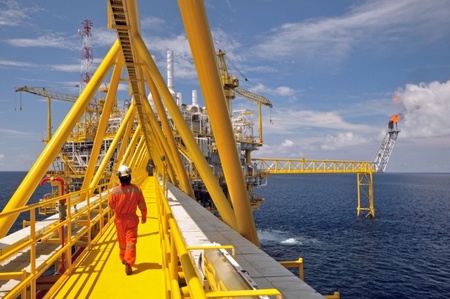Scientists from the University of Aberdeen are developing new technology they claim will be a "game-changer" in enhancing production from North Sea gas fields.
Nanotechnology is more commonly associated with medical sciences, with limited application in the oil and gas sector. But now, academics are pioneering a new method that harnesses nanotechnology to enhance the production efficiency of cyclic gas wells.
The project is being led by Dr Roozbeh Rafati and Dr Amin Sharifi from the University’s School of Engineering. It is supported by the Oil and Gas Technology Centre (OGTC) and three industrial partners - Chrysaor Production UK Limited, Schlumberger and ChampionX.
The work is based on the development of so-called ‘smart fluids’ using nanoparticles that significantly improve existing techniques that promote well production.
Dr Sharifi said: “There are challenges associated with the gas production from mature reservoirs where reservoir pressure is low and gas production may become uneconomic using the current technologies.
“We have been discussing these issues with oil and gas companies since 2018, and based on fundamental research has been carried out here at the School of Engineering, we are using nanotechnology to develop smart fluids that have the potential to overcome these challenges.
“Over the next 15 months we aim to prove that this technology will work, and if successful we will then move to a North Sea field trial in 2021.”
Dr Rafati added: “The potential for this technology is huge, with significant annual production improvements foreseen per gas well. Not only will it provide economic benefit through operational savings, but it will also offer an environmentally friendly solution compared to current technologies. We believe it will be a game-changer for the industry.”
Craig Hodge, Project Engineer at the Oil & Gas Technology Centre, said: “The development of nanotechnology to improve foam performance used as a method of artificial lift, has exciting potential to be a cost effective means of significantly increasing recovery from low pressure, water loaded gas fields.
“Engineering nanoparticles to enhance foam performance and stability will not only maximise the uptime of wells, but will improve the environmental profile of foamer treatments through reduced chemical demand.”
Scott McCrorie, VP Technical Assurance & Innovation Chrysaor, added: "the development and deployment of this innovative technology will reduce the recycle time on our cyclic gas wells, enhancing recovery and improving both plant efficiency and carbon intensity"


